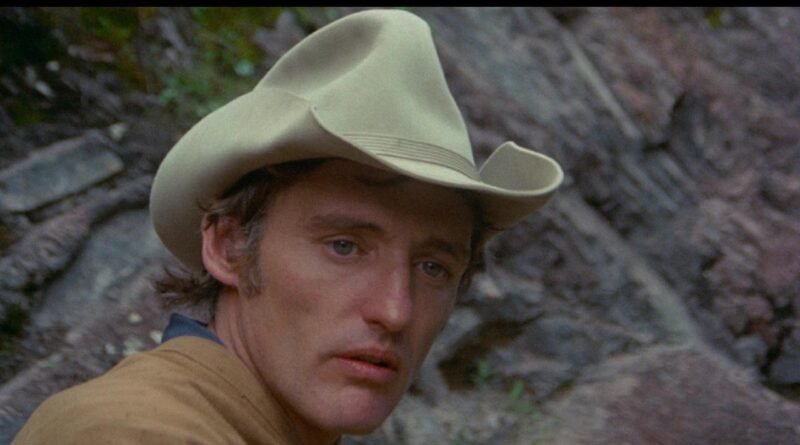Hidden Gems: The Last Movie (1971)
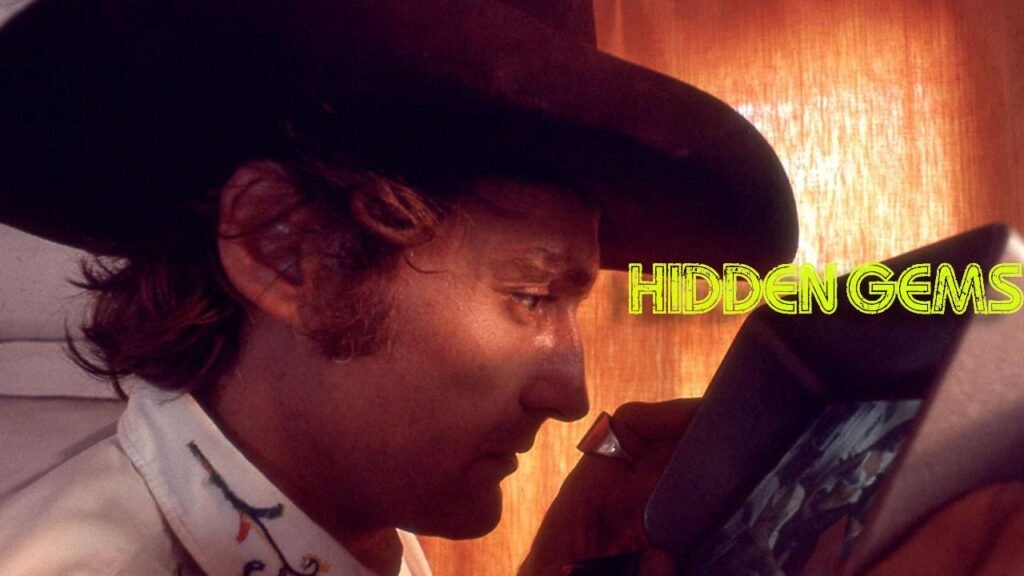
The Last Movie, 1971 (Dennis Hopper) MCA/Universal
“She says she loves me and
you know I can’t complain
But only when it rains
does it rain
And only when it stops
it is no more
And only once does
the big ship come down
To let those good rats
run ashore.”
How strange is post-Easy Rider Dennis Hopper? This is a man shouting at mountain tops, arms raised and likely crying for God, or a god. Success is a delicious treasure for most. For others, it’s a crutch, and where do you go after Easy Rider? Where do you go after the greatest, and possibly the most career-defining, success of your life? Nowhere. Or Peru. Wherever you go, you stay far away from America, not only the land, but the dream.
America is an idea in The Last Movie, Hopper’s 1971 follow-up to his motorcycle journey. This is exactly where you would expect him to go because he has no ideas. He’s thinking about himself. The Last Movie is a tribute to celebrity vanity and Hopper’s search for meaning in that celebrity quicksand. Hopper gets credit for Easy Rider. It’s credit he doesn’t deserve. He simply shouted at the mountain top the loudest and got his turn to direct from a script co-written with Terry Southern and Peter Fonda.
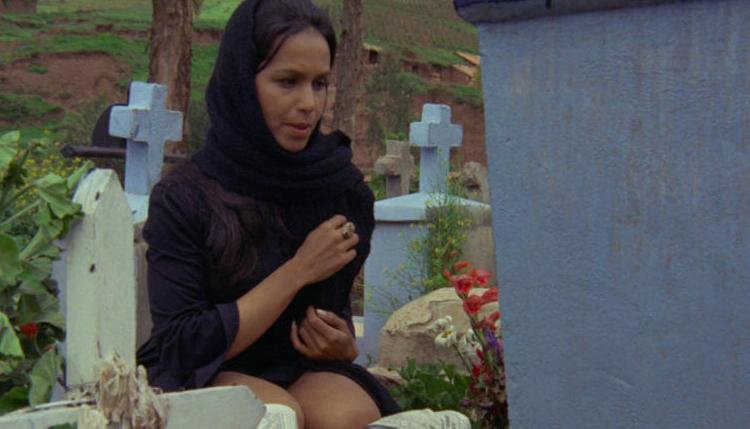
The aftermath was interesting. Biker movies had already been in circulation for years, so the new form of the neo-western was introduced. Anti-heroes became the norm. Fonda got his shot to direct The Hired Hand, a big budget western. Jack Nicholson’s career exploded. Hopper got a million dollars to make The Last Movie, a movie that destroys movies. Dennis Hopper isn’t a director. He’s an actor who demands your attention.
He isn’t the first movie star to take a look around his set and come to the realization that nothing is real. That he inhabits a plastic, manufactured, artificial paradise with breakaway tables and chairs and sugar glass. It isn’t real. It’s an antiseptic, pacified fantasy. It’s possible he did way too many drugs before cashing the million-dollar check from Universal and set out to make his neo-western. It’s such a travesty.
I wish I could get behind this movie, but it’s just so mired in its pretension, it has no hope of escaping. It’s a less coherent Head with no political message. It’s celluloid masturbation. Hopper’s Kansas, a stuntman finishing his work on a western shot in Peru observes the natives imitating a movie crew, pretending to make their own movie with cameras built out of branches and torches in place of lights. They don’t understand that movies are fake.
The natives believe the violence in movies to be real and they are not satisfied with Kansas’ explanations of his stunt work and how he makes it look like he’s been shot or punched. They want this spectacle to have meaning, otherwise it’s violence for the sake of violence, and has no meaning. It is a reversal of the idea that we make movies about primitive cultures. Instead, they make pantomimed versions of movies about so-called “modern” cultures—us.
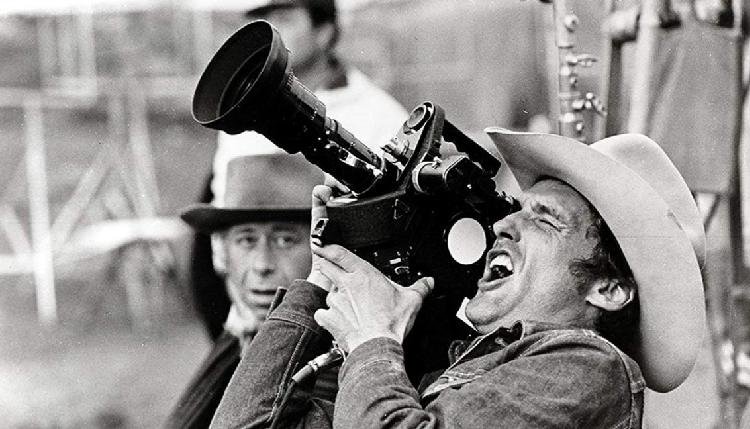
We’re the fools in this scenario, even if the depiction of the natives comes off as childlike and patronizing. After an actor is killed when one of Kansas’ stunts is improperly executed, he becomes disillusioned and decides to retire and stay in Peru with his native-born girlfriend, Maria (Stella Garcia). When his American friends come down to visit, he takes them to the hot spots and finds whores for his buddies. He insults Maria by making out with other women right in front of her.
Maybe I’m missing the point, and this is just the study of an ugly American. Hopper made his bones in westerns, as far back as playing Billy Clanton in Gunfight at the O.K. Corral. He portrayed rebels and angry young men. He hung out with James Dean and Dean Stockwell (who cameos briefly). Stories of his antics and abuse circulated across Laurel Canyon. He was a spoiled brat of a child actor, equally maddening and brilliant.
Many true filmmakers have sought to copy his style, but few have grasped his instability. I suspect that instability was a big part of his talent. With The Last Movie, he falls in love with Peru. It is gorgeous and László Kovács’ photography is appropriately complimentary, but this isn’t a western. It’s deconstruction. Westerns are about the taming of the land.
The Last Movie is about the destruction of natural beauty. Kansas is made to pay penance for his misdeeds and destruction by being executed in effigy at the end of the “pretend” film. I really wanted to get behind Hopper’s disjointed, nonlinear narrative, but I had the distinct impression he was only doing this to distract from the fact that nothing happens of substance in The Last Movie. There isn’t much to recommend for The Last Movie, other than the fantastic cast. Kris Kristofferson and Severn Darden pop up to sing some songs.
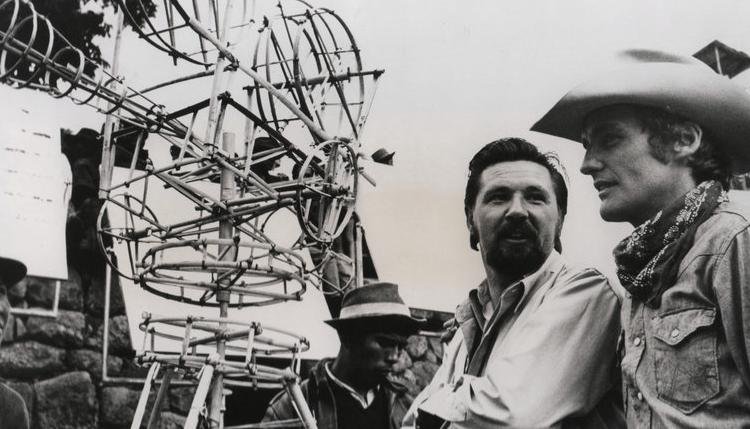
Kansas, being the antihero, doesn’t need to make a difference. He only exists to hate, possibly pity. He isn’t passionate, so you can’t hate him, and he takes no moral or ethical stand, so he can’t be pitied. He’s a waste of our time. He hates himself. He hates America, the idea (the idea that made him rich), and he loves the natives, but only as long as they continue to play pretend like children. The minute they grow up, he’ll lose interest, kind of like how I lost interest in The Last Movie.
Still, it is a curiosity. A fragment of a forgotten time. Remember that this was only two years after Don Knotts’ The Love God?. The landscape had changed. The next ten years would see the creativity wrested from the producers and the studio system, for good or ill, before bad timing and ballooning production budgets took that power back. In a way, Dennis Hopper and The Last Movie were the problems, not the solutions.

